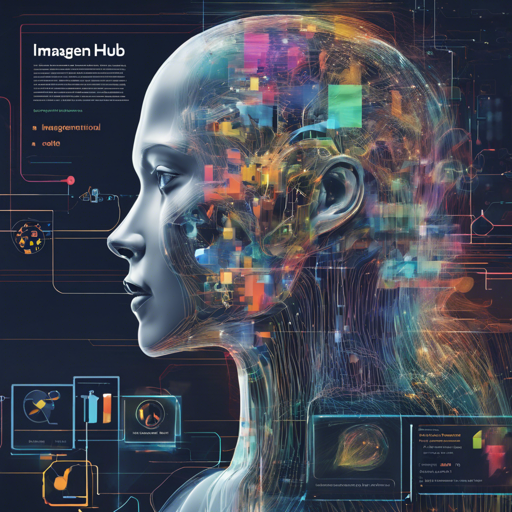Welcome to the world of ImagenHub! This powerful library standardizes the evaluation of various conditional image generation models and makes it easy for you to get started. In this article, we’ll walk through how to install ImagenHub, benchmark image generation tasks, and troubleshoot common issues you might encounter along the way.
Installation
Installing ImagenHub is as simple as pie. There are two primary methods: using PyPI or building from the source. Here’s how to do it:
- **Install from PyPI:** Simply run the following command in your terminal:
pip install imagen-hub - **Build from source:**
- Clone the repository:
git clone https://github.com/TIGER-AI-Lab/ImagenHub.git - Navigate into the cloned directory:
cd ImagenHubconda env create -f env_cfg/imagen_environment.ymlconda activate imagenpip install -e .For certain models like Dall-E, DreamEdit, and BLIPDiffusion, you may need to check the Extra Setup for any special instructions.
Get Started with Benchmarking
Now that you have ImagenHub installed, let’s dive into the fun part—benchmarking different models for text-guided image generation! You can reproduce experiments reported in the papers easily. Here’s how:
- Run the benchmarking script:
python3 benchmarking.py -cfg benchmark_cfg/ih_t2i.yml - The expected output structure will be:
- result_root_folder
- experiment_basename_folder
- input (If applicable)
- model1
- model2
- To visualize the results, run:
python3 visualize.py --cfg benchmark_cfg/ih_t2i.yml
Inferring a Model
Suppose you want to generate an image from a prompt. Here’s how you could do it:
python
import imagen_hub
model = imagen_hub.load("SDXL")
image = model.infer_one_image(prompt="people reading pictures in a museum, watercolor, seed=1")
image
Understanding Evaluation Metrics
To evaluate the generated images against real images, you might find it helpful to use LPIPS (Learned Perceptual Image Patch Similarity) as a metric. Here’s a simple example:
python
from imagen_hub.metrics import MetricLPIPS
from imagen_hub.utils import load_image, save_pil_image, get_concat_pil_images
def evaluate_one(model, real_image, generated_image):
score = model.evaluate(real_image, generated_image)
print("==== Score: ", score)
# Load images for evaluation
image_I = load_image("https://chromaica.github.io/Museum/ImagenHub_Text-Guided_IEinput/sample_102724_1.jpg")
image_O = load_image("https://chromaica.github.io/Museum/ImagenHub_Text-Guided_IE_DiffEdit/sample_102724_1.jpg")
show_image = get_concat_pil_images([image_I, image_O], h)
model = MetricLPIPS()
evaluate_one(model, image_I, image_O) # ==== Score: 0.11225218325853348
show_image
Troubleshooting Common Issues
If you encounter any issues, don’t worry! Here are some troubleshooting tips:
- Ensure your Python and library versions are compatible. Check the documentation for version requirements.
- If you receive an import error, verify you have activated the correct virtual environment.
- Model-specific issues? Refer to the documentation for detailed setup instructions.
- For any unresolved issues, feel free to reach out for support or ideas by visiting **[fxis.ai](https://fxis.ai)**.
At **[fxis.ai](https://fxis.ai)**, we believe that such advancements are crucial for the future of AI, as they enable more comprehensive and effective solutions. Our team is continually exploring new methodologies to push the envelope in artificial intelligence, ensuring that our clients benefit from the latest technological innovations.
Conclusion
ImagenHub not only facilitates the evaluation of conditional image generation models but also fosters a community of open collaboration and exchange. Enjoy exploring the myriad of possibilities ImagenHub presents in the realm of image synthesis!
For further insights, updates, or to collaborate on AI development projects, stay connected with **[fxis.ai](https://fxis.ai)**.

